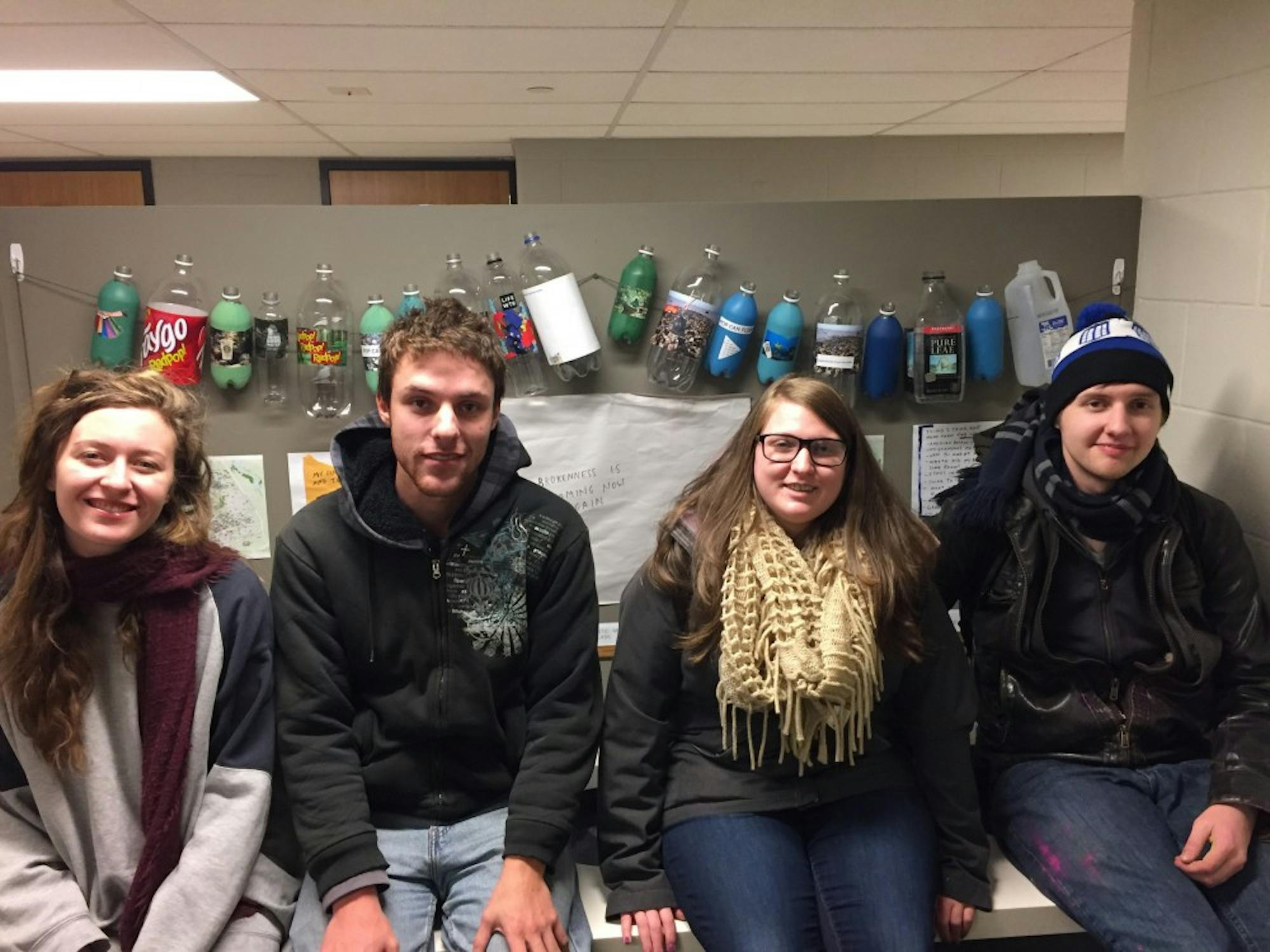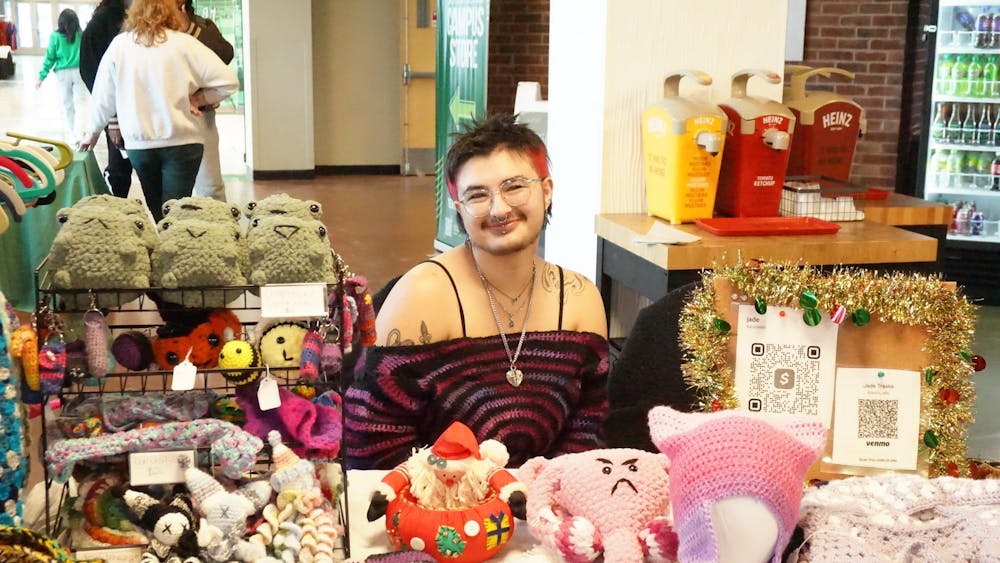Four students placed artistic displays around Pray-Harrold as part of a collaborative project to promote recycling and sustainability on campus.
As part of their community and collaborative projects course, students Abigail Vermeulen, Raley McCrea, Ethen Click and Kacey Greaves created displays to make students more aware of what they throw away.
“We want to bring a little more awareness to recycling practices because it hasn’t necessarily been going so well,” Vermeulen said. “We’ve been talking to the director of sustainability…she gave us a little information on points that need to be strengthened on campus and recycling was one of the big ones.”
The displays were placed on Friday, Nov. 10 and take on a variety of shapes. One is a tin man statue on the lawn outside Pray-Harrold, accompanied by a tree crafted from plastic bags. Greaves said the tree is supposed to represent the sheer amount of plastic that’s tossed away.
“Only one in every 200 plastic bags are recycled,” she said. “I wanted to do something with plastic bags that illustrated that – I wanted to use 200 bags but I think I ended up using more then that.”
Another display is a variety of recycled papers over the standing recycling cans on the third floor of the building. Spray-chalk quotes from Janet Kauffman’s book "Eco-dementia" were written on the sidewalk outside the doors, one such quote reading "rob yourself of your gravesites" and another "what will outlast you."
The lifted quotes were an inspirational tie-in not only to the topic but to the creative writing course all the students take. A blog created for the assignment was named after the course’s catalogue number - the 422 crew.
During its research, the group found that many students fail to recycle things that can be recycled, such as paper coffee cups and plastic bottles. Greaves said the main reason for the difficulty is a lack of incentive, and that students often don’t think about where their trash goes.
One of the potential solutions suggested was simply having more recycling bins on campus, something the group learned from EMU’s student organization Gathering Resources to Educate about our Environment and Nature.
“There are no recycling bins at those events [sporting events/football games],” said Greaves. “That’s a lot of people and a lot of waste that ends up in the trash bins.”
The group said the use of language was a big part of the project.
“Our role as a group is to bring awareness in a unique way that makes people think about things a little differently, using language that is thought provoking,” said Vermeulen. “It’s not just didactic, it’s not in a way that just telling you to recycle – and maybe people will wonder a little more about it.”
When asked about other artistic inspirations, McCrea mentioned his and Click’s research in the The Heidelberg Project, a Detroit-based urban art project that attempts to bring the community together by painting over abandoned buildings.
“We liked the idea of being able to take something that’s considered waste and make it into something of value and of use,” Greaves said.
The displays will remain for the next couple weeks. The group hopes it will, at the very least, allow students to think more about where they throw their trash.










